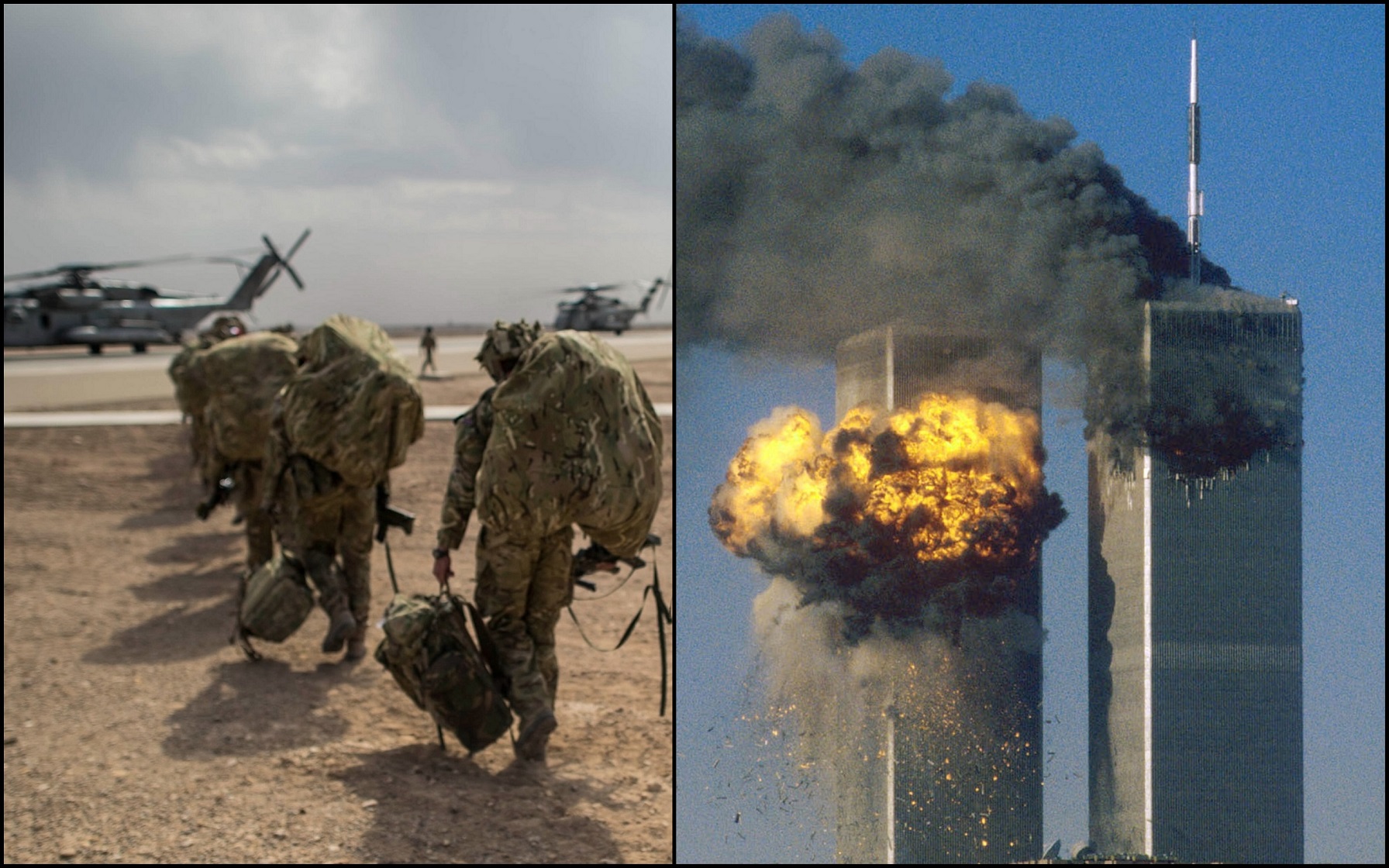Publications
INSS Insight No. 1518, September 13, 2021
The withdrawal from Afghanistan by the United States 20 years after it attacked the Taliban regime and al-Qaeda in response to the September 11 terrorist attacks closes a historic circle. Al-Qaeda’s attack against the American homeland and its iconic symbols challenged the United States, and led it to invade Afghanistan and drive the Taliban out of the country into Pakistan, and also hurt al-Qaeda severely. The United States later took advantage of the prevailing international atmosphere to invade Iraq and remove Saddam Hussein from power. The United States subsequently led an international coalition to defeat the Islamic State, established in Iraq and Syria. In recent years, however, the US presence in the Middle East has receded. This trend, including the withdrawal from Afghanistan, albeit not directly connected to an increased terror campaign against the US presence there, has strengthened the faith of the Salafi-jihadi organizations in the power of military jihad as a path to return them to center stage in the Muslim world, and to the international theater in general. This is liable to create fertile ground for increased violent and incendiary activity.
Despite the Taliban's victory celebrations and the statements of congratulations and support from al-Qaeda, the United States withdrawal from Afghanistan is largely unrelated to Bin Laden and his successors. US President George W. Bush launched the campaign against al-Qaeda and its affiliates and supporters in Afghanistan in retaliation for the September 11 attacks, and in order to oust the Taliban from power. The 2021 withdrawal constitutes a finale to the efforts by the three American presidents who succeeded Bush to free the United States of the huge economic burden and resist further losses among its forces due to its prolonged stay in Afghanistan. The Biden administration believes that countering the terrorism against the United States that is liable to come from Afghanistan, especially on American soil, does not require a full military presence; it can be dealt with remotely by relying on intelligence, technology, and military capabilities.
The withdrawal, carried out in late August, occurred as per an agreement with the Taliban signed by the Trump administration in February 2020 that stipulated a date for completion. For the United States, the withdrawal reflected a change in the administration's priorities in foreign affairs, with great power competition, mainly vis-à-vis China, Russia, and Iran, taking precedence, alongside climate and green energy issues. It also reflected the administration's preference for focusing on internal challenges, above all the economy and healthcare.
The September 11 attacks exacted a heavy toll, not only from the people of the United States, Afghanistan, and Iraq – which the United States attacked to remove Saddam Hussein from power – but also from the population of the entire world. Although international terrorism, which already increased in the late 1960s and afterwards, had already restricted freedom of movement, mainly in global aviation, the terrorist attack in the United States undermined the sense of security in many countries; led to a decrease in individual freedoms, primarily in the liberal democracies; and imposed additional restrictions on the movement of people in their own countries and throughout the world. The attack resulted in increasingly burdensome security checks in every public space, and generated significant delays in public, commercial, cultural, and sports activity, and in everyday life. The suspicions and introversion, precisely at a time of globalization and expectations of increased liberty and free societies, were clear. They were also reflected in law, law enforcement, and the authorization of a greater degree of surveillance and invasion of privacy involving immigrants and minority communities. At the same time, given the growing recognition of the importance of human rights, the attack highlighted the tension between individual rights and national security needs.

A decade after the September 11 attacks, the Arab Spring upheaval destabilized regimes in the Middle East and brought about regime change in a number of countries. This upheaval constituted the background to the emergence of the Islamic State, which gave renewed momentum to Salafi-jihad terrorism in the Middle East and beyond. This development can be regarded as one of the undesirable byproducts of the shockwaves created by the September 11 attacks. Today, however, following the failure of the attempt to restore Islam to the dominant position it enjoyed at the time of the Prophet Mohammad, ISIS and al-Qaeda, which were both rivals and partners in jihad, have reached a crossroads. Their temporary and short-lived successes peaked with the September 11 attacks and the rise of the Islamic State, which overran large parts of Iraq and Syria. Now, however, they are again on the defensive – a marginal minority on the Islamic periphery that was defeated militarily by a united international coalition. It is clear that at this time, they are looking for a way to energize young Muslims in order to realize their religious-political vision by means of global jihad.
At present, the Salafi-jihadi organizations seek what for them would be auspicious historic, political, and geopolitical developments: for example, a takeover of an Islamic territory or a people with an Islamic majority to serve as a safe harbor in which they can absorb and train a large number of volunteers as a base for an "Islamic army"; conquest of a Muslim land by a foreign force in order to spark mass volunteering for a struggle against the infidel conquerors; a charismatic leader to electrify and unite the masses around him; or a dramatic earthshaking event that will incite the Muslim masses. All or some of these developments could help rebuild the ruins left by the Islamic State's military defeat and assuage the blow in morale to its supporters, and thereby help resurrect global jihad. Meanwhile, al-Qaeda, ISIS, and their respective affiliates are able to conduct only dozens of terrorist attacks each month that are insufficient to rejuvenate Islamic jihad sentiment. These attacks are little more than a security annoyance, mostly in remote regions of the world.

It is still premature to determine whether the US withdrawal from Afghanistan will ignite another wave of terrorism in the international arena and help recruit new and fresh forces for terrorist activity in the West. There is no doubt, however, that it will help cultivate the ethos and myths that serve as the currency of the Sunni global jihad organizations, and as propaganda for their Shiite colleagues-rivals as well. These myths do not necessarily correlate with historic reality, but they provide encouragement for "Islamic resistance" organizations and encourage determination, persistence, and endurance, based on a strong internal belief that their day will come, even if it is delayed. For these organizations, September 11 was a divine event, and the establishment of the Islamic State was the beginning of the redemption. In their view, the COVID-19 pandemic is a punishment sent by Allah to afflict their heretic enemies.
There are many political lessons of the US response to the 9/11 attacks vis-à-vis the local and international theaters, the level of international ties and commitments, and the global strategic and operational-military spheres. Given the pictures of the US withdrawal from Afghanistan, and irrespective of what led to this decision – even if not the result of a military defeat – it t is clear that the price of a too prolonged occupation of territory providing shelter to terrorist organizations, particularly if they are an integral part of a local population that is sympathetic to them or prefers them to a corrupt local government, is destined to be very heavy. This lesson, which did not need the lengthy American stay in Afghanistan and the circumstances in which it ended as additional confirmation, is also relevant elsewhere. Notwithstanding the differences in historical context, circumstances, and security needs, decision makers in Israel should take note.



